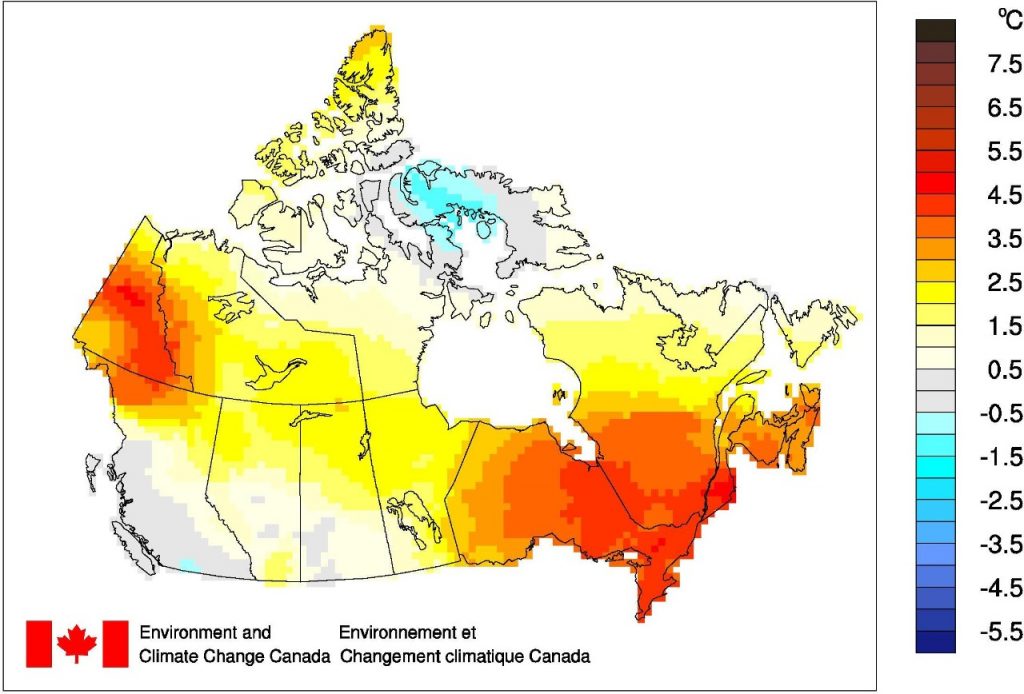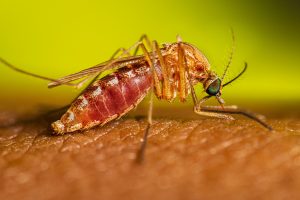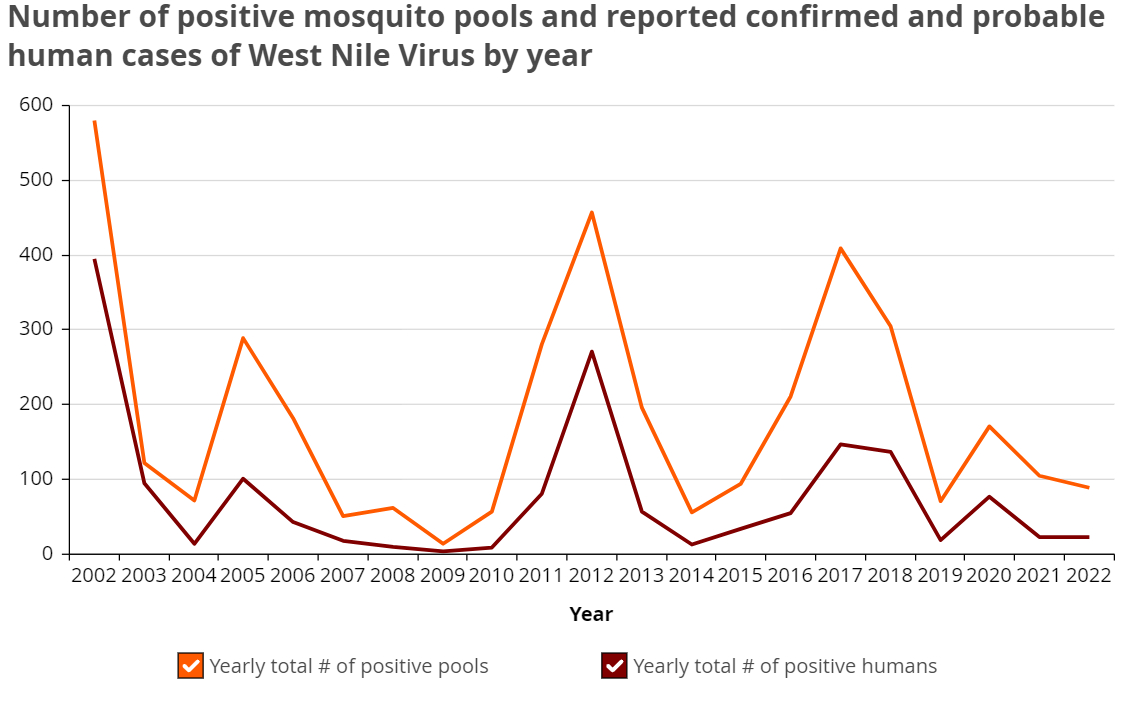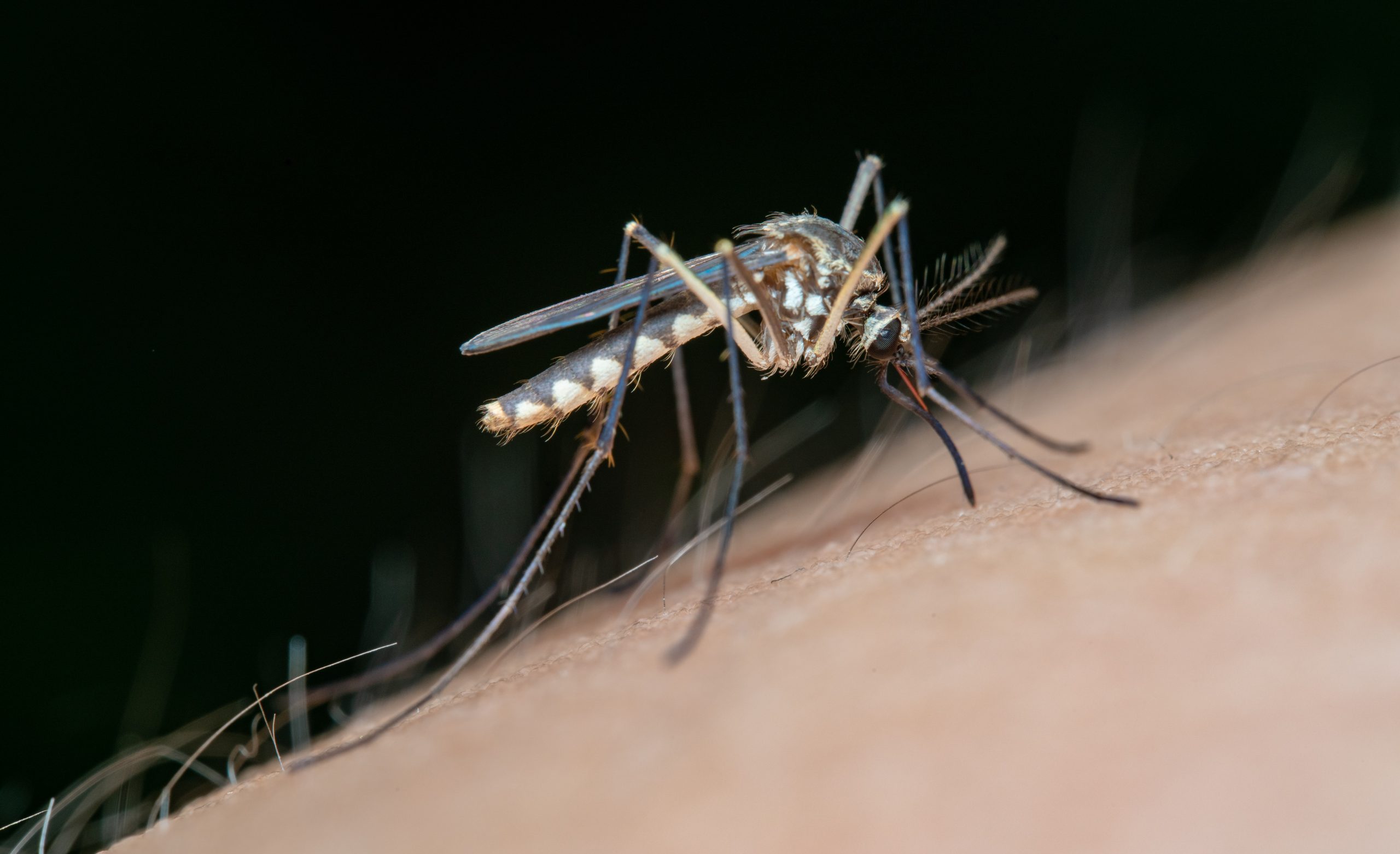WELLINGTON COUNTY – Buzzing mosquitoes can be bothersome pests, and their bites can pass on diseases like West Nile virus.
But public health officials recommend people don’t let the insects deter them from enjoying time outdoors – just take measures to limit bites.
Many residents in Wellington County – and in other areas across southern Ontario – have commented about a perceived increase in mosquitoes this year, but experts say it’s too early to confirm an increase because there’s not yet enough data.
Medical entomologist and Brock University biology professor Dr. Fiona Hunter is widely regarded as Ontario’s top mosquito expert.
Though she declined a full interview due to the volume of requests she’s receiving, Dr. Hunter noted in an email, “Most want to know if the mosquitoes really are worse this year than last year …
“But the majority of health units haven’t even started trapping yet, so I don’t actually have any data to look at.”
Mosquito surveillance
Public health units started trapping mosquitoes for surveillance in communities across Ontario last week, said Wellington-Dufferin-Guelph Public Health (WDGPH) manager of health protection Phil Wong.
“Anecdotally, we have been hearing a lot of people saying they are seeing more mosquitoes in the field,” but it will be a few weeks until enough data is collected to determine whether mosquito populations are higher this year, he added.
The traps use dry-ice, lights and fans to attract and pull in mosquitoes.
Once a week, the mosquitoes caught are identified and tested, providing localized data about the species and diseases present.
“There is a direct correlation between positive pools from testing, trapping and monitoring, and human cases” of West Nile virus, Wong said.
No mosquitoes or people in Wellington, Dufferin or Guelph tested positive for West Nile virus in 2022.
However Toronto and Peel Region had 30 mosquito pools test positive and 13 human cases of the disease last year.
Climate change
Mosquitoes are “very climate dependent,” Wong said.
“A milder, shorter winter allows more overwintering for mosquito eggs,” leading to increased numbers of mosquitoes and mosquito-borne diseases.
Last winter, average temperatures in southern Ontario were more than four degrees Celcius above baseline average temperatures from 1961 to 1990, according to Environment and Climate Change Canada.
A cold snap in early spring can also lead to increased populations at this time of year, Wong said, because mosquitoes’ breeding cycles are delayed, leading to higher volumes of the insects now.
This year, Wellington County saw snow in late April, days after a stretch of temperatures between 20 and 30 degrees Celsius.

This map shows departures from the 1961-1990 average accross Canada in the winter of 2022/23. Temperatures more than four degrees Celcius above the baseline average were recorded in eastern and southern Ontario, southern Quebec, and central and southern Yukon. Image from Canada.ca.
Different species carry different diseases
Climate also impacts the ecological range of different mosquito species, Wong said, and some species are more likely to carry West Nile virus and other diseases.
“If a host species is moving into spaces they don’t usually go, we may see more West Nile virus in those communities,” Wong added, which is why “tracking and early surveillance” is important.
The species of highest concern is Culex, because they can carry and spread West Nile virus, Wong said.

A female adult Culex quinquefasciatus mosquito. CDC photo
While mosquitoes can spread other diseases, like Zika virus and encephalitis, he said “West Nile virus is the main disease we are worried about right now.”
There are thousands of mosquito species across the world that carry many different diseases, but “not a lot of them can survive Canadian harsh winters,” Wong noted.
However, warmer winters means increasingly more species are able to overwinter here.
Chuck Ferguson, the communications manager at GWDPH, said mosquitoes that carry diseases like Zika virus, dengue fever, and malaria “are not currently known to be present in our region, but have been found in southwestern Ontario.”
According to a study published in the Canada Communicable Disease Report, “there is a risk of establishment of exotic mosquitoes and mosquito-borne diseases in Canada with climate change,” especially those transmitted by Aedes albopictus mosquitoes, commonly known as tiger mosquitoes.
This species can carry Zika virus, dengue fever and chikungunya virus.
West Nile virus
Higher temperatures also increases the amount of West Nile virus in the region, Wong said, because the warmer the weather, the more disease-carrying birds arrive in the area, and the higher the probability of mosquitoes in the region carrying West Nile virus.
Referring to public health data, Wong said “the last major spike was in 2017, when in Ontario there was 147 human cases” of West Nile virus, following a “very mild winter.”
Last year, there were “23 positive human cases in Ontario,” he noted.
Making accurate predictions about the number of West Nile virus cases is “very hard,” Wong said, because “there are so many parameters” and variables.

Positive mosquito pools and reported confirmed and probable human cases of West Nile Virus in Ontario in 2022. Public Health Ontario graph
While most cases of West Nile virus are asymptomatic, serious illness can occur and, at times, the virus is fatal.
Symptoms include “high fever, headaches, neck stiffness, disorientation, coma, tremors, muscle weakness, numbness, vision loss and paralysis,” Wong said.
People experiencing any of the above symptoms should talk to their health care provider.
There is no treatment for the disease, but medical care can include intravenous fluids, pain medication and monitoring.
The virus does not spread between people, except for possible prenatal transmission.
There is also no vaccine, so the best preventative measure is protection from bites.
Avoiding mosquito bites
Wong said people shouldn’t let “mosquitoes and other biting insects to prevent us from enjoying the outdoors.”
Instead, people should protect themselves from bites by:
- limiting time outside at dusk and dawn when mosquitoes are most active;
- wearing loose, light coloured pants and long sleeves;
- repairing screens on windows and doors so insects don’t get inside;
- wearing deet or other repellents; and
- removing standing water.

Removing standing water to limit mosquito-breeding grounds is an important part of managing mosquito populations. CDC photo
Mosquitoes take between four and 10 days to breed in standing water.
Water in flower pots, bird baths, eavestroughs, puddles and other places where people spend time should not be left for more than three days.
And ponds and pools should be maintained, to reduce the number of places mosquitoes can breed.
While smoke from a campfire can repel nearby mosquitoes, Wong said the smoke from wildfires in Quebec and northeastern Ontario is very unlikely to impact mosquito populations in Wellington, Dufferin or Guelph.




